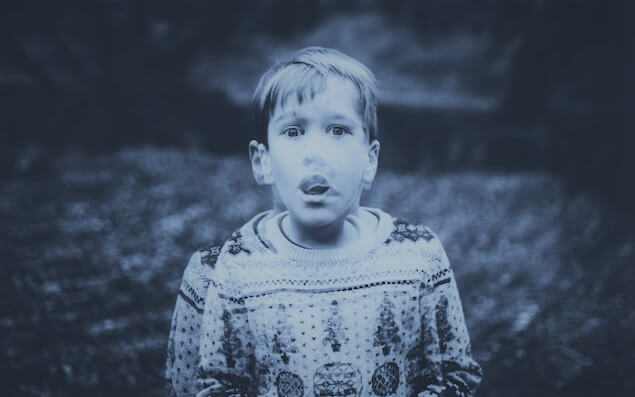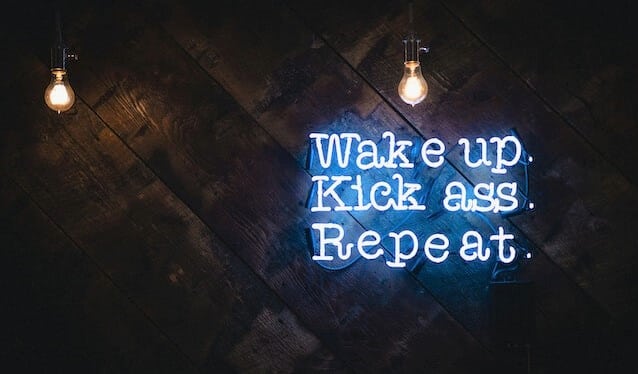Rewriting the Narrative : Is Fear Really a Vulnerability?
I AM Human. I am 54. And I still experience fear and Vulnerability in my life pretty often.
I have such a vast experience in dealing with fear that I am proposing my findings here in the hope to help anybody build a functional framework to handle his own challenging moments, and accept victory and temporary setbacks with the same awareness.
Fear is a universal emotion (=humans, animals and even plants experience it!) that can be triggered by various circumstances and can either hinder our progress or serve as a catalyst for growth. It makes you vulnerable only if you give it the false meaning, like defining yourself and your worth as a person. But it can become a powerful ally to discover deeper aspect of yourself and positively force your growth.
In this article, we are going to explore the multi-faceted concept of fear and delve into whether it truly represents a vulnerability.
We will examine the definition of fear, its impact on our lives, and how it affects personal growth, decision-making, and relationships,
My goal for today is to gain together a deeper understanding of the role fear plays in our lives.
Of course then we will also explore strategies for overcoming fear and use it to our advantage for an improved knowledge about ourselves and a launching pad to our own growth.
So, back to the original question : is fear really a vulnerability?
Is fear really a weakness, or does it have the potential to unlock hidden strengths within us?
Read on as we start to explore the nature of our perception of fear and how a different reading could positively impact our lives.

Understanding Fear
Definition of Fear
To state it as easily as possible, fear can be defined as an emotional response to a perceived threat or danger. It is a natural survival mechanism that prepares our bodies and minds to react to potential harm.

For instance, have you already heard about the concept of “fight or flight response”?
When faced with fear, our brains activate the fight-or-flight response, to actually stand and fight, or rather fly, a.k.a. back up and run away from the cause that generated the fear in the first place.
Under the command of our brain, we will automatically will produce and spread hormones in our body that increase our heart rate, sharpen our focus, and enhance our physical abilities.
Again, this is a very primal instinct and has helped humans survive throughout history….so It should be pretty clear by now that it is nothing to be ashamed about.
However, since we already stopped long ago running away from dinosaurs or hostile invaders, in our modern times fear is not limited to immediate physical threats. It can also arise in response to psychological, emotional, or social stimuli.
More on the subject ahead.
Types of Fear
We just learned that fear can manifest itself in various forms, each with its unique characteristics and triggers. To give some example to reflect about, some common types of fear include:

- Phobias: Phobias are intense, irrational fears of specific objects, situations, or activities. Examples include arachnophobia (fear of spiders), acrophobia (fear of heights), and for instance, I heavily suffer claustrophobia (fear of enclosed spaces).
- Anxiety Disorders: Anxiety disorders involve excessive and persistent fear or worry that significantly impacts a person’s daily life. Generalized anxiety disorder (GAD), panic disorder, and social anxiety disorder are unfortunately common examples nowadays…
More Fear-Related Phenomena
- Fear of Failure: This type of fear revolves around the apprehension of not meeting one’s own or others’ expectations. It can hinder personal growth and prevent individuals from even trying to break from the comfort zone or pursue their goals.
- Fear of Rejection: Fear of rejection stems from the fear of being judged, criticized, or excluded by others. It can affect social interactions and relationships, leading to self-doubt and isolation.
- Existential Fear: This type of fear revolves around the fundamental questions of life, such as the fear of death, the fear of meaninglessness, or the fear of the unknown (this is something I personally encountered recently, and it’s becoming more present as my age go further – I am 54 at the moment – as well as that of my wife and my kids…).
Research Deeper
This little list is by no means exhaustive…The point I am trying to make is that understanding the different types of fear can be essential for you to better comprehend Your personal circumstances. So I encourage you to google other specific resources on the web, even better some from respected professionals who can explain the relationships between fear and physiology much better than I can. ☺️
Now, let’s go a step further and explore the profound effects fear can have on us.
The Impact of Fear
As widely demonstrated, fear can have profound effects on both our physical and psychological well-being. It is not merely a fleeting emotion but can linger and leave serious damages influencing various aspects of our lives for extended periods of time.

But in my personal experience iI found that when I had to face some of my personal demons, It ended in me discovering in myself strengths and capabilities I never knew I had !
And NO, It wasn’t a display of courage from my side at all, It was only that the circumstances of the moment forced me to react in a way I wouldn’t do in standard situations.
So, understanding the impact of fear is also a crucial step in comprehending its potential as an incredible life teacher as well.
Physical Effects of Fear
When we experience fear, our bodies undergo a series of physiological changes. Our heart rate increases, our breathing quickens, and our muscles tense up.
As we found before, this response is an evolutionary adaptation designed to prepare us for reaction in the face of danger. However, prolonged or excessive fear will definitely take a toll on our physical health.
Chronic fear without any kind of support brings to continuous anxiety and has been linked to a range of health issues, including cardiovascular problems (=you risk high blood pressure and/or a heart attack), weakened immune function, and digestive disorders (Gastritis, slowed digestion or food refusal).
The constant release of stress hormones, such as cortisol, can lead to long-term inflammation and contribute to the development of very low life conditions…
Moreover, fear disrupts our sleep patterns, leading to fatigue and decreased cognitive function.
In a nutshell, it hinders our ability to relax and enjoy life, thus perpetuating a reinforced cycle of stress and anxiety.
Psychological Effects of Fear
Fear not only impacts our physical health but even more heavily our mental and emotional well-being. It can shape our thoughts, behaviors, and overall outlook on life.
(Actually, the consequences we experience on our bodies are only the results of the psychological disorders caused by poor management of fear and anxiety).
common psychological effects of fear
- Paralysis and Avoidance: Fear paralyzes us, preventing us from taking necessary action or pursuing our priorities. It can create a self-imposed prison, nullifying our potential and trapping us in our comfort zones. Additionally, fear can lead to avoidance behavior, causing us to shy away from anything lets us feel “unsafe”, for instance necessary confrontations with other people
- Anxiety and Worry: Fear often accompanies feelings of anxiety and excessive worry. It can manifest as a constant sense of unease, anticipating potential threats or negative outcomes (= a working definition of anxiety). A chronic state like this can interfere with our ability to focus, make decisions, and maintain healthy relationships.
- Low Self-esteem and Self-doubt: Fear erodes our self-confidence and self-worth. It fuels self-doubt and negative self-talk, making us question our abilities and worthiness. These feelings of inadequacy can hinder personal growth as they prevent us from reaching our full potential.
- Emotional Instability: Fear can trigger intense emotions such as anger, sadness, or helplessness. It creates a rollercoaster of emotional highs and lows, destabilizing our attempts to control and direct our day to day life.
( For the more adventurous readers, here is an article from the National Library of Medicine regarding the biology – yes, the biology – of Fear. A bit technical but really interesting! ).
So, what do you think? What is your personal journey? What strategies did you develop to cope with your emotional challenges?
Is fear an obstacle to personal growth, decision-making, and healthy elationships?
Let’s delve deeper.
Fear as a Vulnerability
We are moving now to the point of the matter here…
From our western-culture standpoint, fear is often viewed as a vulnerability, as something that holds us back, makes us back up from demanding situations and prevents us from expressing our “real” potential….
In other words, the concept of fear as a vulnerability often stems from its perceived ability to hold us back.
It can make us feel weak, hesitant, and uncertain.
However, please understand that fear is not only a natural response to potential threats and dangers, but also a valuable compass in certain situations…
It serves as a protective mechanism that has evolved over time to keep us safe.
So in reality fear become paralyzing only when we give it an incorrect meaning…
Be gentle and understanding with yourself : you were raised in an environment that has been extolling warriors, explorers, leaders and superheroes for centuries!!
And today, in our Social-media junkie society, you are a perfect zero if you are not at least a Billionaire+Iron Man+Immortal Alien combined in a body that screams perfection!
But if you turn off this circus for a moment and spend some time with yourself without any judgment, you are going to find that the simple solution to manage fear is to recognize its purpose clearly and acknowledge its help in your life.
Transforming Fear into Motivation
Fear can serve you well as a powerful motivator.
if we learn to harness its energy. Instead of letting fear paralyze us, we can channel it into positive action.
Fear can be a phenomenal driving force that pushes us to take risks, pursue our dreams, and achieve success.
By reframing fear as a source of motivation, we can use it to propel ourselves forward and accomplish remarkable things.
But how do you accomplish that?? Read on.

Fear and Personal Growth
Contrary to the popular belief that a fearful person will never get anywhere, fear can indeed be used successfully as a catalyst for personal growth.
Fear and insecurities often arise when we encounter unfamiliar territory or face challenges that push us beyond our known limits.
In other words, fear is the signal we are approaching areas of our experience where we can and will grow.
Let’s be real here : It will take a while to rewrite this new habit into your subconscious…
Stepping into the unknown, despite our fears, is highly innatural but allows us to expand our comfort zones, acquire new skills, and gain a deeper understanding of ourselves.
And managing fear requires courage and resilience, valuable qualities that contribute to personal growth and self-discovery.
Shifting Your Perspective
Now, instead of viewing fear as a roadblock, let’s reframe it as a catalyst for change.
I really desire to hammer it home, so allow me to repeat : we are changing our mindset to see fear as an indication that you’re stepping outside of your comfort zone and onto the path of growth.
This way you can cool down and thus create space to reframe the role of fear as a teacher that can guide you towards your true potential.

Setting Clear and Measurable Goals
Clearly defining your goals will let you establish a roadmap to success.
Break down your objectives into smaller, manageable steps that allow you to gradually confront your fears.
By setting achievable goals, you’ll build confidence and momentum, transforming fear into a driving force for motivation.
Plus, all the points you are going to score in this game will remain, reminding you any time that “YOU CAN”!
Hey, there are tons of material related to goal settings, time management and personal growth on this website, we wrote them to help! Enjoy!.
Embracing Failure as a Learning Opportunity
The modern understanding of failure often holds us back from taking risks.
But failure as an essential part of any learning process.
Understand that setbacks and mistakes are valuable opportunities for growth and improvement.
Follow me here!
The whole scientific research framework is based on trials and errors. We establish hypotheses and we test them.
As we collect failures and scratch what doesn’t work, we gain at the same time a deeper understanding of the research objective.
And with these new insights, hypotheses are reformulated and the process begins again. Rinse and repeat.
Now, the only difference from our attempts to understand and manage our vulnerabilities is :
| The lack of strong emotional attachment while applying the process |
Nothing more than that, really….
Embracing a growth mindset is not hard, you can use failure as a stepping stone toward success.
Cultivating a Supportive Network
Surround yourself with individuals who uplift and encourage you. Seek out mentors, friends, or communities that understand and share your journey and provide support.
Sharing your fears and aspirations with trusted and like-minded individuals not only lightens the burden but also empowers you with different perspectives and insights.
Now stop and think for a moment : isn’t that curious that different people could see a different meaning in the same situation?
| If you understand that then tell me : Why should your own vision of the situation be the only possible truth? |
… I really can’t wait to read your answer…. 😉
Fear and Decision-Making
Can you remember the situation when an animal on the road is petrified by the headlights of your car?
Exactly that way, fear can significantly influence our decision-making process.
It can cloud our judgment, as we evaluate perceived threats rather than objective evaluation, and this leads us to choices we wouldn’t even think of in other circumstances…

Fear and Relationships
And last but not least, fear can have a profound impact on our relationships with others. It can either strengthen the bond or create barriers and distance. Here are a few ways in which fear can affect our relationships:
- Fear of Vulnerability: Fear often stems from a fear of being emotionally vulnerable. Opening up and expressing our true selves can be daunting, as it exposes us to the possibility of rejection or hurt. This fear can hinder the formation of deep connections and intimacy in relationships.
- Fear of Trust: Past experiences of betrayal or heartbreak can instill a fear of trust in relationships. The fear of being hurt again can lead to guardedness and an inability to fully trust others, hindering the development of healthy and meaningful connections.
- Fear of Abandonment: Fear of abandonment can stem from past experiences or attachment issues. It can create clinginess, possessiveness, or a constant need for reassurance in relationships. This fear can strain the relationship dynamics, create domination and dependency.
- Fear of Conflict: Fear of conflict can hinder open and honest communication in relationships. It can lead to avoidance of difficult conversations, suppressing emotions, and unresolved issues. This fear can create tension and prevent the positive resolution of conflicts.
When fear poses challenges in relationships, and those relationships are important to you, then step ahead and open yourself! : it is important to address and dissect these fears together.
Believe me, I know: the very act of talking about your insecurities will greatly reduce them, sometimes making you even laugh when you realize the absurdity of what is coming out of your mouth!
(And as a bonus tip, here is an article from Psych Central containing further advices on how to handle your relationship fears)
Overcoming Fear
Embracing Fear and Its Hidden Strengths
Rather than seeing fear as a weakness, we have the understanding now to embrace it as an opportunity for personal growth.
Overcoming fear requires courage and resilience, qualities that help us navigate life’s challenges with confidence. By pushing beyond our comfort zones, we unlock new possibilities and expand our horizons.
Transforming Fear into Motivation
Fear can serve as a powerful motivator if we learn to harness its energy. Instead of letting fear paralyze us, we can channel it into positive action. Fear can be a driving force that pushes us to take risks, pursue our dreams, and achieve success.
So, once reframed, we can use it to propel ourselves forward and accomplish remarkable things.
Building Resilience
Overcoming fear is not a one-time event; it is an ongoing process.
And by gradually facing our fears and stepping outside our comfort zones, we develop resilience: each small victory over fear strengthens our confidence and equips us with the tools to tackle future challenges.
Through resilience, we become more adaptable, flexible, and better prepared to navigate life’s uncertainties.
Overcoming fear is a personal journey that requires time, self-compassion and support. Here are some ideas to reflect upon :
- Acknowledging and Accepting Fear: Recognize and acknowledge your fears without judgment. Understand once for good that fear is a natural response but does not define your capabilities or worth. Acceptance allows you to confront your fears head-on.
- Developing Coping Mechanisms: Identify healthy coping mechanisms that work for you, such as deep breathing exercises, mindfulness, or seeking professional help. Support yourself in any way possible while you learn managing fear and anxiety effectively.
- Seeking Support: Exactly! Do not fret to reach out to trusted friends, family, or professionals who can provide guidance, support and insights. Surrounding yourself with a supportive network can make the journey of overcoming fear less daunting.
- Setting Realistic Goals: It is natural to see this task like climbing Everest…Break down the process into smaller, manageable steps. Set realistic goals that gradually expose you to your fears, allowing you to build confidence and resilience along the way (= be gentle with yourself).
Remember, overcoming fear is not about eliminating it entirely but learning to navigate it and not allowing it to dictate your choices and hinder your growth.

(And by the way, I wrote an extensive article on Resilience and the nature of adversities, check it out!).
FAQs (Frequently Asked Questions)
#1 – Can fear be completely eliminated?
- A: Fear is a natural human emotion and cannot be entirely eliminated. However, we can learn to manage and navigate our fears effectively.
#2 – How can I differentiate between rational and irrational fears?
- A: Rational fears are based on real threats or dangers, while irrational fears are excessive and unrelated to the actual risk. Rational fears serve a protective purpose, while irrational fears can be addressed through rational thinking and appropriate response strategies.
#3 – Is it normal to experience fear in relationships?
- A: Of course, anxiety in relationships is normal. Vulnerability and emotional openness can evoke fear, but it is essential to address and discuss these fears openly to build trust and intimacy with your partner.
#4 – What if my fear is holding me back from pursuing my dreams?
- A: Fear of failure or the unknown is common when pursuing our objectives. But having even a basic strategy like developing a plan, and taking gradual steps forward will bring you far ahead than 90% of the world’s population
#5 – How long does it take to overcome fear?
- A: This is a hard question to answer. The time it takes to overcome fear varies for each individual. It depends on the nature and intensity of the phobia itself. Learning to manage our wildest emotions can be slow and gradual. Patience, persistence, and self-compassion are key in building strong foundations to deal with any kind of fear.
Conclusion
Do not feel yourself dumb if it seems that you cannot master your fears.
Fear is an extremely complex and multi-faceted emotion that affects us in a great number of ways, some of them very subtle…
It is often misunderstood as a vulnerability due to its potential to hold us back. And the general consensus in our “modern society” also plays a detrimental role. But Fear also presents strong opportunities for personal growth, heightened decision-making, and deeper connections with ourselves and with others.
Overcoming fear and then learning to walk your walk alongside it is an ongoing process that builds resilience and equips us to face life’s challenges with next-level confidence.
So, let us embrace fear, harness its hidden power, and unlock skills we even didn’t know to possess!.
Remember, it’s not about the absence of fear, but rather about our ability to accomplish and thrive despite its presence.
So, the next time you feel fear creeping in, call it a “signal for a change” rather than a weakness and treat it accordingly.

Give Yourself trust
Be reasonable, but challenge yourself, and watch as you exceed your own expectations. As Eleanor Roosevelt once said, ‘I have lived through this horror. I can take the next thing that comes along. ‘
In conclusion, fear is not a vulnerability but rather a gateway to personal growth and evolution. It is a natural response that can either hold us back or propel us forward. You CAN understand and reframe the purpose of fear. You CAN embrace it, transform it into motivation, and end with a killer tool to unleash your true potential.
It is really under our grasp to embrace the challenges that lie before us. Create a life that is fulfilling, and extraordinary.
Remember, the greatest achievements often stem from stepping outside our comfort zones and embracing the unknown.
It has always been that way, and probably it will always be ☺️









